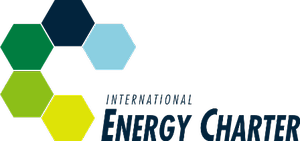
Energy Charter Conference
Search Open Yearbook
This information is part of the Open Yearbook, a free service of UIA's subscription-based Yearbook of International Organizations (YBIO). It includes profiles of non-profit organizations working worldwide in all fields of activity. The information contained in the profiles and search functionality of this free service are limited.
The full-featured Yearbook of International Organizations (YBIO) includes over 72,500 organization profiles, additional information in the profiles, sophisticated search functionality and data export. For more information about YBIO, please click here or contact us.
The UIA is a leading provider of information about international non-profit organizations. The aim of the Open Yearbook is to promote the activities of international non-governmental organizations (INGOs) and intergovernmental organizations (IGOs).
Contact Details
URL: https://www.energycharter.org/
Twitter: https://twitter.com/Energy_Charter
Facebook: https://www.facebook.com/EnergyCharter
LinkedIn: https://www.linkedin.com/company/energy-charter
Founded
1994
History
Established under the provisions of T-XT9112 - Energy Charter Treaty (ECT) and the 'Energy Charter Protocol on Energy Efficiency and Related Environmental Aspects', signed Dec 1994, Lisbon (Portugal), and entered into force Apr 1998. The Treaty was signed or acceded to by 55 states and the European Union. Roots date back to a political initiative launched in the early 1990s, at a time when the end of the Cold War offered an unprecedented opportunity to overcome economic divisions, and there was a recognized need to ensure that a commonly accepted foundation was established by developing energy cooperation among the states of the Eurasian continent. The Treaty's common "rules of the game" for the energy sector are designed to encourage investment and trade, to ensure reliable transit, to promote energy efficiency use, and to provide neutral mechanisms for the resolution of disputes. The Energy Charter Treaty was developed on the basis of the Energy Charter Declaration of 1991. Whereas the later document was drawn up as a declaration of political intent to promote energy cooperation, the Energy Charter Treaty is a legally- binding political instrument. The fundamental aim of the Treaty is to strengthen the rule of law on energy issues, by creating a level playing field of rules to be observed by all participating governments, thereby mitigating risks associated with energy-related investments and trade. In May 2015 a new political declaration, the International Energy Charter, was adopted or signed by 75 states and international organizations, and addresses the energy challenges of the 21st century and reflects the efforts to extend the global reach of the Energy Charter. The International Energy Charter remains open for signature by all states willing to accept those principles.
Aims
Find balanced solutions to key energy challenges among a diverse range of member countries across Europe and Asia, including producers, consumers and transit states, participating in the Charter on an equal basis.
Events
7 past events available with paid subscription only.Activities
Available with paid subscription only.Structure
Chairmanship held by a different country every year since 2014. Committees (2); Groups (4); Subsidiary Bodies (6); Secretariat.
Languages
Available with paid subscription only.Staff
Available with paid subscription only.Finance
Available with paid subscription only.Relations with Inter-Governmental Organizations
Available with paid subscription only.Relations with Non-Governmental Organizations
Available with paid subscription only.Publications
Available with paid subscription only.Members
Available with paid subscription only.Type I Classification
Available with paid subscription only.Type II Classification
Available with paid subscription only.Subjects *
Available with paid subscription only.UN Sustainable Development Goals **
UIA Org ID
XE2744
Last News
2024
** UN SDGs are linked to the subject classification.
← return to your search page to find additional profiles.
UIA allows users to access and make use of the information contained in its Databases for the user’s internal use and evaluation purposes only. A user may not re-package, compile, re-distribute or re-use any or all of the UIA Databases or the data* contained therein without prior permission from the UIA.
Data from database resources may not be extracted or downloaded in bulk using automated scripts or other external software tools not provided within the database resources themselves. If your research project or use of a database resource will involve the extraction of large amounts of text or data from a database resource, please contact us for a customized solution.
UIA reserves the right to block access for abusive use of the Database.
* Data shall mean any data and information available in the Database including but not limited to: raw data, numbers, images, names and contact information, logos, text, keywords, and links.